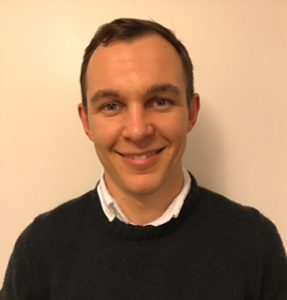 I recently read a BBC article that provided an alternative to the regular press rhetoric on NHS performance this winter; namely, that the fact the NHS has been able to perform as well as it has this winter is a miracle in the face of growing pressures and budgetary cuts. The article stressed that one reason the NHS had been able to cope so admirably was due to the dedication and hard work of its staff. Given my own personal experience and my first six months of working as a doctor, this article served to crystallise some interesting questions, reflections, and concerns.
I recently read a BBC article that provided an alternative to the regular press rhetoric on NHS performance this winter; namely, that the fact the NHS has been able to perform as well as it has this winter is a miracle in the face of growing pressures and budgetary cuts. The article stressed that one reason the NHS had been able to cope so admirably was due to the dedication and hard work of its staff. Given my own personal experience and my first six months of working as a doctor, this article served to crystallise some interesting questions, reflections, and concerns.
One thing that has struck me during my clinical training and early working life as a doctor is how underappreciated frontline clinical staff are in comparison to workers in the private sector. Having worked for five years as a research chemist in pharmaceuticals before retraining as a medic, I can attest to how much more valued you are made to feel as an employee in the private sector. Private companies are fully aware that their staff are key “assets,” and they are subsequently treated as such—not only in monetary terms.
For those in the state sector, this simply does not appear to be the case. Coupled with the fact that, as commented on in the article, NHS services would simply not be coping as well as they are if not for the “extraordinary” efforts of staff, it seems all the more amazing that staff in our NHS are not made to feel truly valued.
Herein lies my key frustration: the efforts of NHS staff seem to be simply taken for granted. There will reach a point where people say “enough,” when they simply cannot go on working like this. Indeed, worrying data published this week allude to this, with the proportion of junior doctors choosing to directly enter specialist training at just 50%, and applications for nursing degrees having also dropped after the scrapping of the bursary system.
One way to stop such a drain of personnel could be to make the workplace and realities of the job more attractive. I have had conversations with senior colleagues considering sabbaticals; they have expressed frustration and the feeling of being worn down by the constant grind of service needs—a scenario that I’m sure is repeated across the country.
None of them have lost their love of the profession, but the reality of working in the modern NHS is starting to take its toll. Conflicts of interest mean that the days of sponsored “perks” of free lunches and conference trips are long gone. My concern is that, unless the NHS finds ways to show appreciation for (and increase the morale of) its workforce, the current rota vacancies we see on the frontline will only grow and become harder to fill as more leave the profession—or choose not to enter it in the first place.
It is, of course, difficult in the current economic circumstances to find a solution that does not pose a conflict of interest and that can be perceived positively by the public. However, we do need to find ways to recognise the commitment and improve the morale of the workforce if we are to ensure the future sustainability of the NHS.
Thomas Sharp is a foundation year one doctor currently working in Margate. He was previously a research chemist in the pharmaceutical industry.
Competing interests: None declared.
